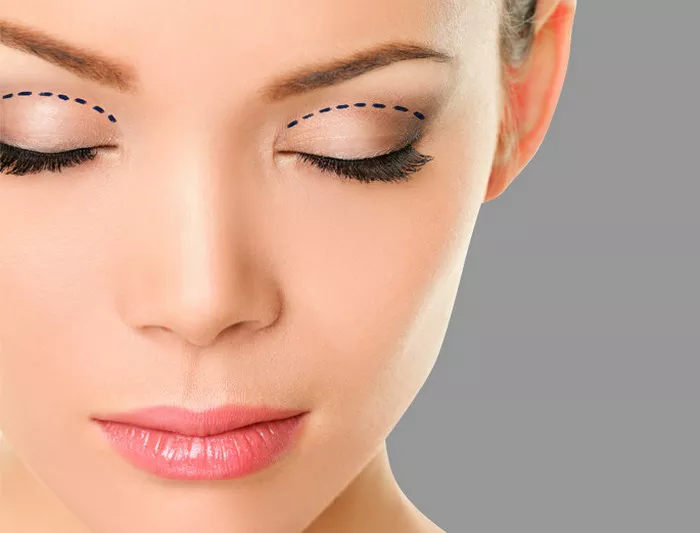Eyelid surgery, also known as blepharoplasty, is a popular cosmetic procedure that aims to improve the appearance of the eyelids by addressing issues such as sagging skin, puffiness, and drooping eyelids. While the surgery can provide remarkable results, it is crucial to follow proper aftercare instructions to ensure a smooth recovery and achieve optimal outcomes. In this article, we will discuss what not to do after eyelid surgery to promote healing and minimize complications.
1. Avoid Touching or Rubbing Your Eyes
After eyelid surgery, it is essential to avoid touching or rubbing your eyes. The incision sites and the surrounding tissues are delicate and need time to heal. Touching or rubbing your eyes can increase the risk of infection, disrupt the healing process, and potentially damage the surgical site. It is best to keep your hands away from your eyes and follow your surgeon’s instructions on how to clean and care for your incisions properly.
2. Do Not Expose Your Eyes to Excessive Sunlight
Protecting your eyes from excessive sunlight is crucial during the recovery period. UV rays can be harmful and may cause irritation, inflammation, or even damage to the healing tissues. Wear sunglasses with UV protection whenever you go outside, even on cloudy days. This will help shield your eyes from the sun’s harmful rays and aid in a smooth recovery.
3. Avoid Strenuous Activities and Heavy Lifting
Engaging in strenuous activities or heavy lifting can strain your body and potentially disrupt the healing process. It is important to avoid activities such as intense workouts, weightlifting, or anything that may put pressure on your eyes. Follow your surgeon’s guidelines on when it is safe to resume physical activities. Light exercises, such as walking, may be recommended to promote blood circulation and aid in the healing process.
4. Do Not Wear Contact Lenses Immediately
If you normally wear contact lenses, it is advisable to avoid wearing them immediately after eyelid surgery. Contact lenses can cause discomfort and irritation to the healing incision sites. Your surgeon will provide specific instructions on when it is safe to resume wearing contact lenses. In the meantime, consider using prescription eyeglasses if necessary.
5. Avoid Smoking and Alcohol Consumption
Smoking and alcohol consumption can have detrimental effects on the healing process after eyelid surgery. Smoking restricts blood flow, which can impair the delivery of oxygen and nutrients to the surgical site, leading to delayed healing and an increased risk of complications. Alcohol can also interfere with the body’s healing mechanisms. It is best to refrain from smoking and limit alcohol consumption for a recommended period as advised by your surgeon.
6. Do Not Skip Medications or Ignore Follow-Up Appointments
Following your surgeon’s medication instructions is crucial for a smooth recovery. Take any prescribed medications as directed, including pain medication, antibiotics, or eye drops. These medications are often prescribed to manage discomfort, prevent infection, and promote healing.
Additionally, do not skip or delay follow-up appointments with your surgeon. These appointments allow your surgeon to monitor your progress, remove any stitches if necessary, and address any concerns or questions you may have. Regular check-ups are essential for ensuring optimal healing and achieving the best possible results.
7. Avoid Applying Makeup or Using Skincare Products
During the initial stages of recovery, it is important to avoid applying makeup or using skincare products near your incision sites. These products can introduce bacteria to the surgical area, increasing the risk of infection. Additionally, some cosmetic products may contain ingredients that can irritate the healing tissues. Follow your surgeon’s guidelines on when it is safe to resume using makeup and skincare products. They will provide specific recommendations tailored to your recovery.
8. Do Not Ignore Signs of Infection or Complications
After eyelid surgery, it is crucial to monitor your incision sites for any signs of infection or complications. If you notice excessive redness, swelling, pus, severe pain, or any other unusual symptoms, contact your surgeon immediately. Prompt medical attention can help identify and address any issues early, ensuring a proper recovery.
Conclusion
Following proper aftercare instructions is essential for a smooth recovery after eyelid surgery. By avoiding activities that may strain your eyes or disrupt the healing process, you can minimize complications and achieve optimal results. Remember to follow your surgeon’s specific guidelines, take prescribed medications as directed, and attend all follow-up appointments. If you have any concerns or questions during the recovery period, do not hesitate to reach out to your surgeon for guidance. With proper care, patience, and adherence to aftercare instructions, you can achieve the rejuvenated and refreshed look you desire.


